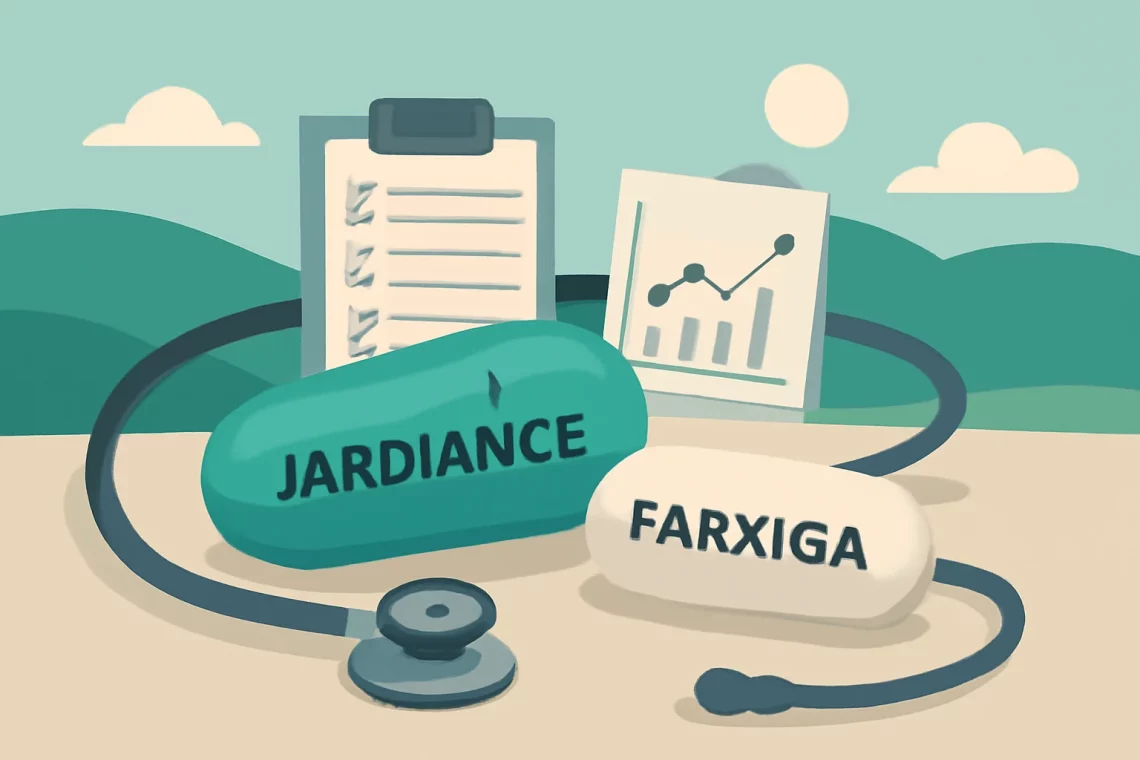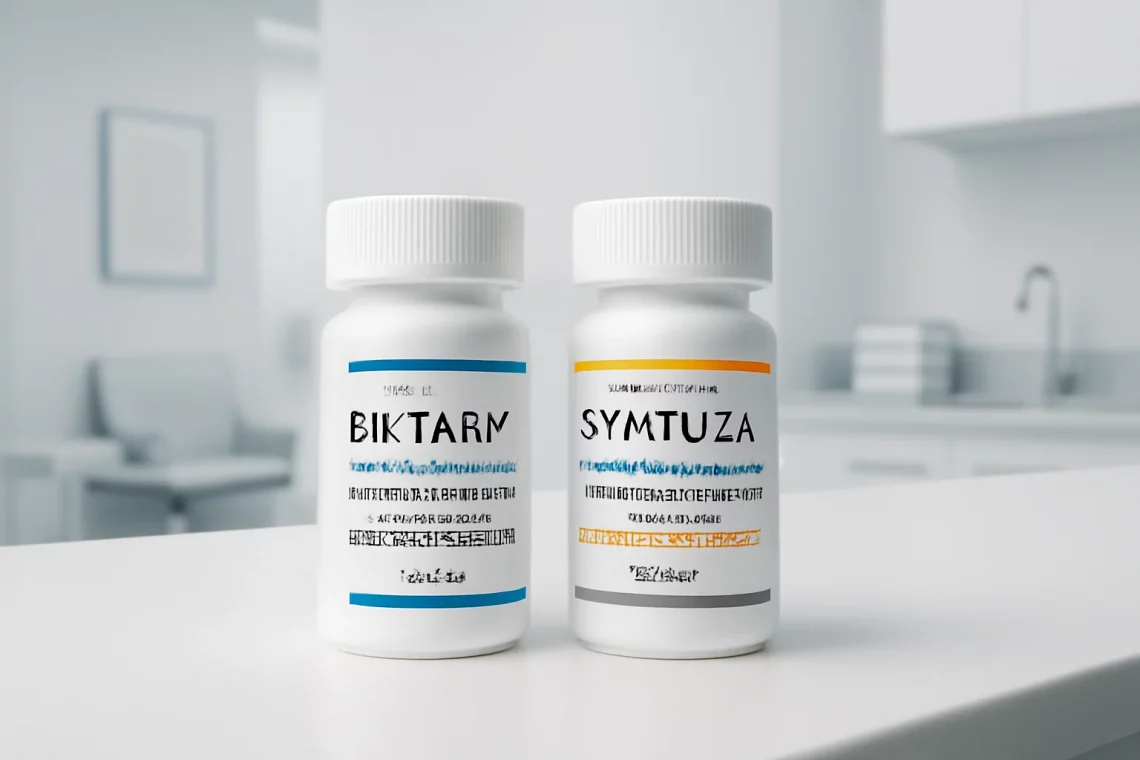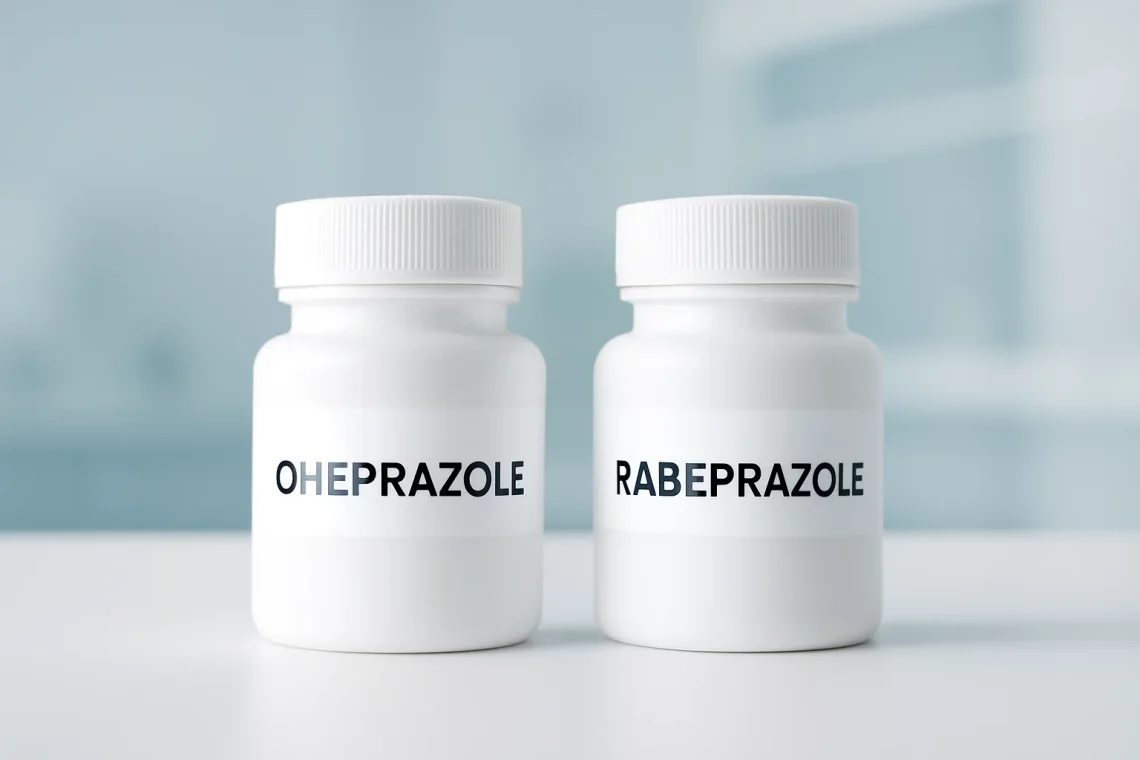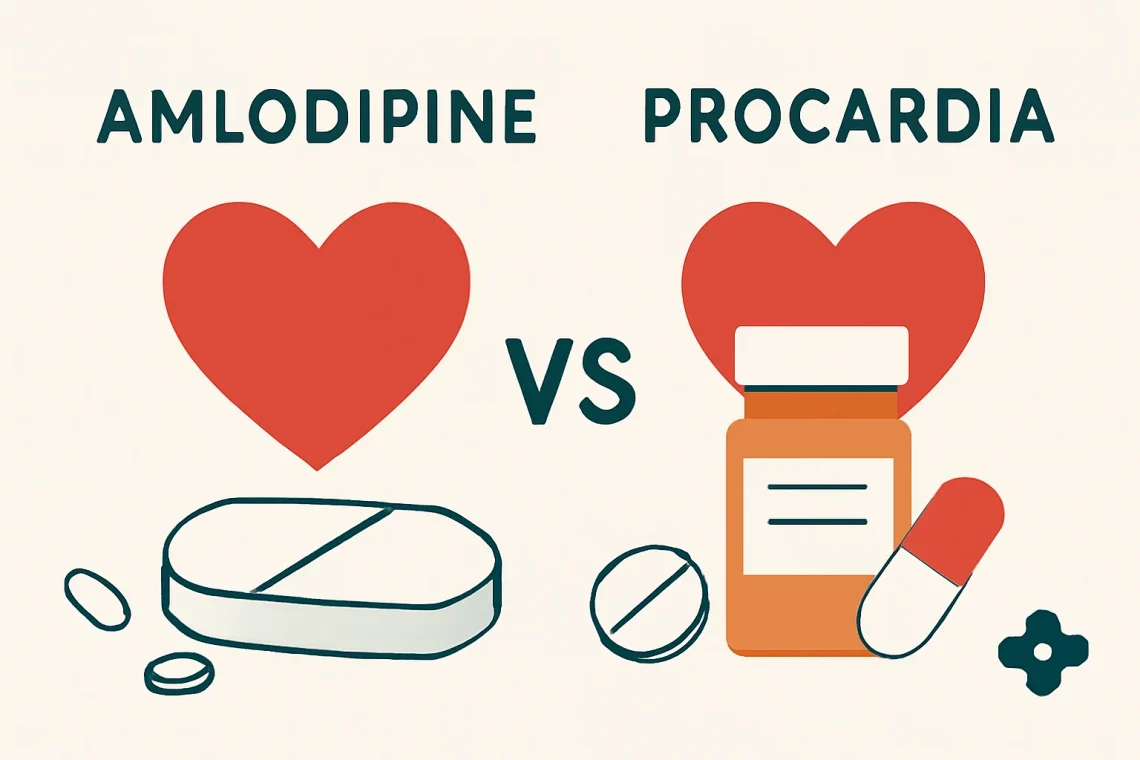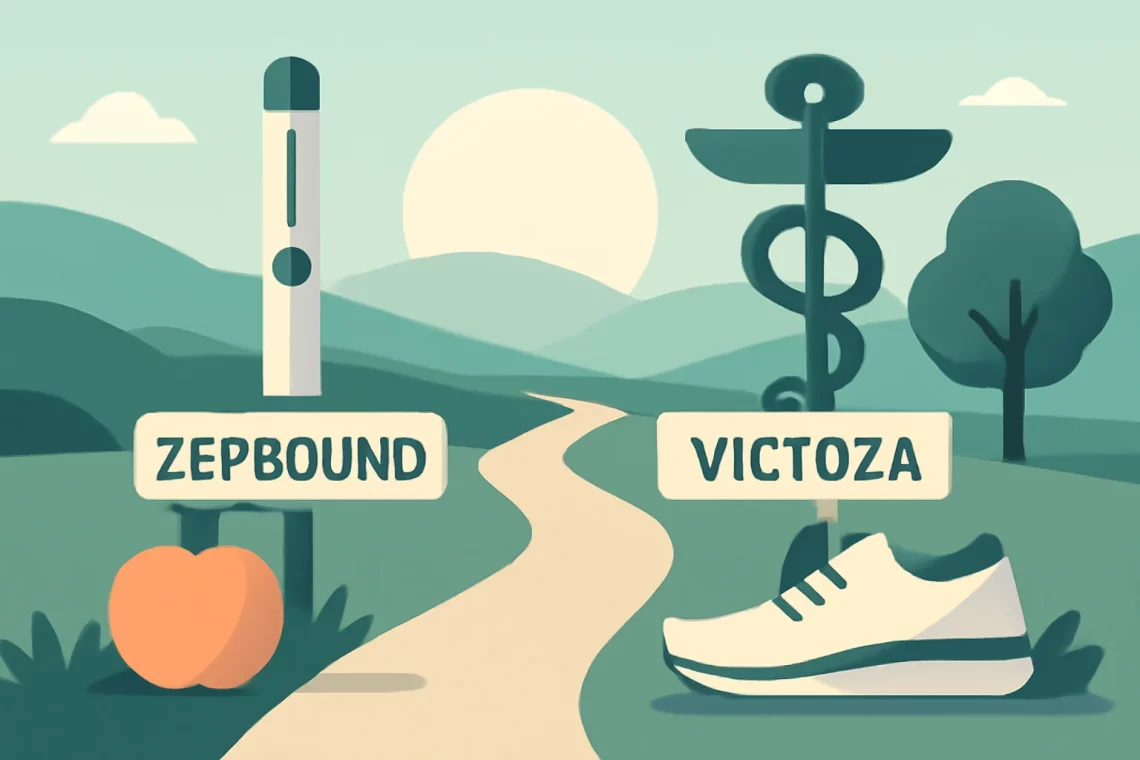-
Jardiance vs Farxiga: Which Diabetes Medication is Right for You?
In the ever-evolving landscape of diabetes management, two medications have emerged as prominent players: Jardiance and Farxiga. Both of these drugs belong to a class known as SGLT2 inhibitors, which work by helping the kidneys eliminate excess glucose through urine. As diabetes rates continue to soar globally, the importance of effective treatment options cannot be overstated. Patients and healthcare providers alike are constantly seeking the most effective and convenient medications to manage blood sugar levels while minimizing side effects. Jardiance and Farxiga not only help in controlling diabetes but also offer additional benefits, such as weight loss and cardiovascular protection. However, the choice between these two medications can be daunting…
-
Biktarvy vs Symtuza: A Comprehensive Comparison for HIV Treatment
The landscape of HIV treatment has evolved significantly over the years, providing patients with innovative options that improve their quality of life and manage the virus more effectively. Among these advancements are two notable medications: Biktarvy and Symtuza. Both of these antiretroviral therapies have garnered attention for their efficacy and once-daily dosing regimens, which can enhance adherence and convenience for patients. As individuals and healthcare providers navigate the complexities of HIV treatment, understanding the differences and similarities between these medications becomes paramount. While both Biktarvy and Symtuza are designed to combat HIV, they possess distinct pharmacological profiles, side effects, and mechanisms of action that can influence a patient’s treatment journey.…
-
Metformin vs Glipizide: Which is Better for Managing Diabetes?
Metformin and Glipizide are two widely used medications in the management of type 2 diabetes. As the prevalence of diabetes continues to rise globally, understanding the differences, benefits, and potential drawbacks of these medications is essential for patients, caregivers, and healthcare professionals alike. Both drugs function through distinct mechanisms to help control blood sugar levels, but their applications, efficacy, side effects, and patient experiences can vary significantly. Metformin, often viewed as a first-line treatment, works primarily by decreasing glucose production in the liver and increasing insulin sensitivity in muscle tissues. On the other hand, Glipizide belongs to a class of drugs known as sulfonylureas, which stimulate the pancreas to release…
-
Omeprazole vs Rabeprazole: A Comprehensive Comparison of Two PPIs
Omeprazole and rabeprazole are two medications that belong to a class of drugs known as proton pump inhibitors (PPIs). These medications are widely used to treat various gastrointestinal disorders, primarily by reducing the production of stomach acid. For many individuals suffering from conditions such as gastroesophageal reflux disease (GERD), peptic ulcers, or Zollinger-Ellison syndrome, PPIs provide significant relief by alleviating symptoms and promoting healing of the esophagus and stomach lining. Despite their similarities in action, omeprazole and rabeprazole have distinct characteristics that may influence a physician’s decision when prescribing these medications. Factors such as efficacy, side effects, drug interactions, and patient-specific considerations can all play a role in determining which…
-
Lyrica vs Baclofen: A Comprehensive Comparison of Uses and Effects
Lyrica and Baclofen are two medications often used to manage different types of pain and neurological conditions. Each has distinct mechanisms of action, benefits, and side effects, making them suitable for various patients and conditions. Lyrica, the brand name for pregabalin, primarily targets neuropathic pain and seizures, while Baclofen is a muscle relaxant predominantly used for spasticity related to neurological disorders. Understanding the differences between these two medications is crucial for patients and healthcare providers in order to choose the most appropriate treatment options. The decision to use Lyrica or Baclofen can be influenced by factors such as the specific condition being treated, the patient’s medical history, and the potential…
-
Lexapro vs Luvox: Choosing the Right Antidepressant for You
The landscape of mental health treatment has evolved significantly over the years, providing individuals with various options to manage their conditions effectively. Among these options, selective serotonin reuptake inhibitors (SSRIs) have emerged as a popular choice for treating anxiety and depressive disorders. Two of the most commonly prescribed SSRIs are Lexapro and Luvox, both of which have established their efficacy in helping patients regain a sense of well-being. As mental health awareness continues to grow, understanding the differences and similarities between these medications becomes increasingly important for patients and healthcare providers alike. Choosing the right medication can be a daunting task, especially with the plethora of options available. Factors such…
-
Amlodipine vs Procardia: Key Differences and Similarities Explained
High blood pressure and related cardiovascular conditions are prevalent health issues that affect millions of people worldwide. As medical science evolves, various medications are developed to manage these conditions effectively. Among the most commonly prescribed drugs are Amlodipine and Procardia, both of which belong to a class of medications called calcium channel blockers. These drugs help relax blood vessels, making it easier for the heart to pump blood and thereby reducing blood pressure. Understanding the differences and similarities between Amlodipine and Procardia can empower patients to make informed decisions about their treatment options. Both medications have distinct mechanisms of action, side effects, and clinical applications. This nuanced understanding can not…
-
Ibuprofen vs Mobic: Understanding Their Differences and Uses
Ibuprofen and Mobic are two widely used nonsteroidal anti-inflammatory drugs (NSAIDs) that have become staples in the management of pain and inflammation. Both medications serve essential roles in treating various conditions, but they are distinct in their chemical composition, mechanism of action, and specific uses. When considering options for pain management, understanding the differences between these two medications is crucial. Patients often face the dilemma of choosing the right medication based on their symptoms, potential side effects, and individual health conditions. While Ibuprofen has been a household name for decades, known for its effectiveness in alleviating headaches, menstrual cramps, and mild arthritis, Mobic, or meloxicam, has gained popularity for its…
-
Benzonatate vs Robitussin: Which Cough Relief is Right for You?
Coughs and respiratory discomfort are common issues that many people face, especially during colder seasons or when exposed to allergens. When it comes to finding relief, various medications are available, each with its unique properties and mechanisms of action. Among the options, Benzonatate and Robitussin stand out as popular choices. Understanding the differences between these two medications can help individuals make informed decisions about their health and well-being. Benzonatate, a non-narcotic cough suppressant, works by numbing the throat and lungs, thereby reducing the cough reflex. This medication is often prescribed for patients experiencing persistent coughs due to conditions such as bronchitis or pneumonia. On the other hand, Robitussin is a…
-
Zepbound vs Victoza: Which Diabetes Treatment is Right for You?
In recent years, the landscape of diabetes management has evolved significantly, with numerous medications being introduced to help individuals achieve better control over their blood sugar levels. Among these, Zepbound and Victoza have emerged as popular options for those managing type 2 diabetes. Both medications work through distinct mechanisms and offer unique benefits, making them suitable for different patient needs. As the prevalence of diabetes continues to rise globally, understanding the differences and similarities between these two medications is crucial for patients and healthcare providers alike. Zepbound, a newer entrant in the diabetes medication market, has garnered attention for its innovative approach to glucose regulation. On the other hand, Victoza…
